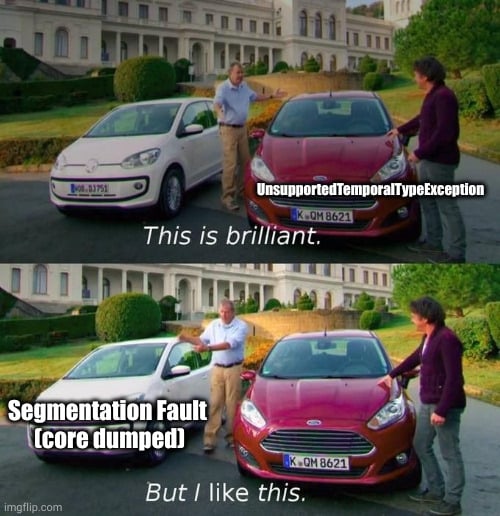I also like watching Doctor Who, how did you manage to make a cute dalek? :d
VegOwOtenks
The extension is called Burn-My-Windows and I always look forward to it when booting into GNOME because it feels so ✨fancy✨
I stumbled over Gradience just yesterday but I tought it was archived sometime last year, is it still working accordingly?
Unfortunately not :/ But I do have rainbow-gradient window borders.
I suppose you're mainly concerned about LibAdwaita-Apps?
I was surprised to learn that
- a) macOS only recently added Left/Right-tiling natively (without extensions, just like GNOME does)
- b) they leave gaps when you tile them so that it looks like you messed up the tiling somehow
Thank you for the detailed answer, especially the explanation 'in more words' and the link helped me understand what happens in this Monoid instance.
Not the first year I participate but the first year I finished, 2021 was my all-time high so far with 42 stars when I was just starting oit and learning python. Knowing that there were more people in the same boat and that there was a competition kept me going, although the competiton also induced a lot of stress, not sure whether I want to keep the competitive attitude.
Thanks to everyone for uploding solutions, Ideas and program stats, this kept me optimizing away, which was a lot of fun!
I alwqys assumed you were Cameron Wu, who is?
Haskell
Have a nice christmas if you're still celebrating today, otherwise hope you had a nice evening yesterday.
import Control.Arrow
import Control.Monad (join)
import Data.Bifunctor (bimap)
import qualified Data.List as List
heights = List.transpose
>>> List.map (pred . List.length . List.takeWhile (== '#'))
parse = lines
>>> init
>>> List.groupBy (curry (snd >>> (/= "")))
>>> List.map (List.filter (/= ""))
>>> List.partition ((== "#####") . head)
>>> second (List.map List.reverse)
>>> join bimap (List.map heights)
cartesianProduct xs ys = [(x, y) | x <- xs, y <- ys]
part1 = uncurry cartesianProduct
>>> List.map (uncurry (List.zipWith (+)))
>>> List.filter (List.all (<6))
>>> List.length
part2 = const 0
main = getContents
>>= print
. (part1 &&& part2)
. parse
Thank you for showing this trick, I knew Haskell was lazy but this one blew my mind again.







I think this is what they are referring to: https://en.wikipedia.org/wiki/Broughton_Suspension_Bridge.
TL;DR: The bridge collapsed because soldiers marching on it created force they hadn't anticipated, soldiers breaking step supposedly don't have as much of an impact.